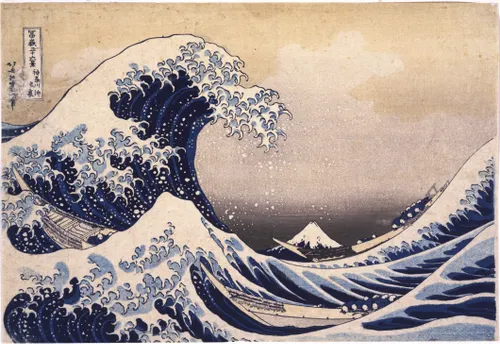Time and Healthy Living Will Blunt Most Medical Conditions
I had a checkup with my doctor the other day. I’m required
to go at least every few years to get my prescription refilled. I have enough
refills throughout the year to survive, but per the insurance, I can’t just
keep getting the same drug in perpetuity. Maybe it’s the drug companies that require
that, I’m not sure. Either way it feels like wasted time. We can handle most of
this through the web chart portal I would think.
“Still having the
same issues?” Yes.
“Any difference on
the prior history forms since 3 years ago?” No.
I suppose they need to do the requisite blood pressure
checks and breathing tests. In person visits are the only way, no getting around
that.
Early Childhood Skepticism
We didn’t go to the doctor much as kids. Only the most
serious issues would force a begrudging trip to the emergency room or walk in
clinic. My parents figured our bodies could take care of whatever illness worked
its way through our system. Kids get respiratory infections all the time. Stomach
aches too and ear infections are a regular part of growing up. Broken arms and
fingers need to be set of course, but fevers just need time. You might miss
school but after a short while you’ll be back to normal. There are always exceptions.
I still have a scar on my right middle finger from stuffing my hand into a
coffee mug and cracking the porcelain while washing the dishes. Needless to say,
we rushed to the emergency room after I stopped the bleeding with a tightly
wound rag.
As an adult I’ve kept the same reluctant approach toward hospitals
and doctors. It’s not a fear necessarily but a “why bother” attitude. Your body
can fix most attacks whether flu or headaches. Some things take longer to leave
your system, but rest and time are all that’s needed. There might be some
superstition in my thinking I’ll admit. Like, if the doctor can’t see something
“off” in my bloodwork it’s not really a problem. This is a bit like not checking
your bank account balance and hoping it’s still full after buying a vacation
cruise package to the Bahamas. If I don’t look at it then I don’t have to think
about it.
But there’s some truth to not thinking about problems and just
letting your body fix it.
The Internal Fix
As a runner I’ve lost count of all the ankle, foot and calf
pain that seems to be a regular occurrence. I’m not talking about debilitating pain
but nagging injuries. Every few weeks another one pops up. They’re not enough
to keep me from jogging though. Usually stretching and sleep are enough. Plantar
Fasciitis was the worst injury I’ve experienced. That one forced me to quit
running for 3 to 4 months until I didn’t notice it anymore. Stretching didn’t
help. Massages didn’t help. Only prayer and waiting got me over the hump. The point
is, the body is designed to heal itself.
Despite the sickness and disease in the world, our bodies
are constantly fighting off infection, repairing damaged tissue and breaking
down toxins. Our part is staying healthy and choosing to exercise and eat
right. My attitude towards doctor visits was shaped as a kid. At root, is a belief
in the body’s ability to heal itself. If God is the designer of our bodies, it
means he created them to heal and repair and function in an orderly way. That’s
a first principles philosophy on health and fitness for me. It’s only a
starting point though. There remains a slew of health issues that have nothing
to do with poor diet or inactivity. But leaving aside autoimmune diseases, birth
defects and mental disorders, a lot of illnesses are lifestyle related. Meaning,
diet and exercise are being ignored.
New Approaches to Health
I’m not one to preach healthy living but the whole MAHA
(Make America Healthy Again) movement has made me rethink food. Like most conservatives
I’ve always taken a libertarian approach to the health of others. It’s none of
my business. The finger wagging stuff from the federal government has always irritated
me. Unfortunately, health care’ is now shorthand for medicine and hospitals.
That means runaway costs for people that probably shouldn’t be on drugs, if they
took better care of themselves. In an ideal system everyone would pay their own
healthcare without the distorting effect of insurance on the market. We aren’t there
yet. For now, it’s a government run system heavily dependent on a both federal
dollars and insurance company cooperation. I don’t pretend to understand it
all. It’s too opaque.
Like education, health
care spending in America outpaces nearly every other country and produces
the worst results. We’re dumber and sicker. Since the American heath care
system is so intertwined with multiple interests, it’s not out of bounds to
start reigning in the drug companies. They’re a major beneficiary of the total spending,
and that’s the way they like it. But we don’t need cheaper drugs as much as we
need fewer people on drugs. I hope this is where RFK Jr and HHS (health and
human services) end up. So far he’s lost a lot of people who aren’t
serious about the direction of the cabinet. He’s right to start from the position
that Americans are as unhealthy as we’ve ever been, and work backward towards a
solution.
Conclusion
I started off mentioning my visit to the doctor to get a refill.
I didn’t miss the obvious irony either, complaining about people who don’t need
drugs while taking one myself. All I can say is it’s not from poor health,
mental or physical. But then again, maybe there is more I can do from a trial
and error perspective. I suppose I could try a different set of vitamins. The body
was made to heal itself after all. God designed us as image bearers of Him.
“I will praise You, for I am fearfully and wonderfully made:
Marvelous are Your works, and that my soul knows very well.” (Psalm 139:14)













